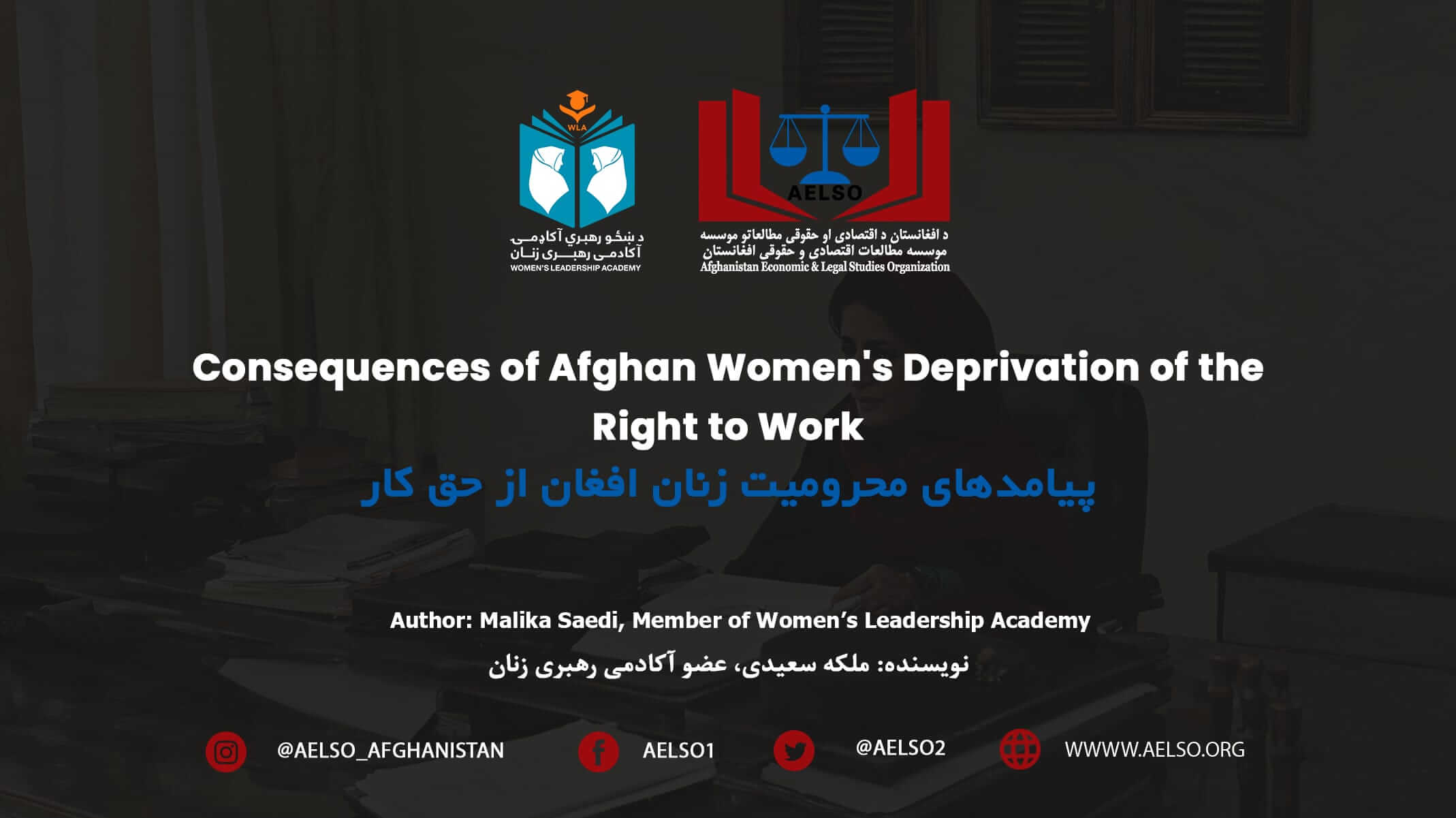
Consequences of Afghan Women’s Deprivation of the Right to Work
Women, as members of the human community, are the most influential factor in the educational and managerial dimensions of both family and society, and their constructive role and active presence in society cannot be denied. As an inseparable part of society, women, through work and effort, are capable not only of advancing their personal and spiritual development but also of playing a vital role in the progress of their social and communal lives. The right to work is one of the fundamental human rights of women, and no one has the authority to deprive them of this right without legal justification.
With the return of the Taliban to power in Afghanistan and the imposition of severe restrictions on women, the denial of women’s right to work has become a major social issue, having widespread negative effects on their lives and leading to their isolation. The primary objective of this article is to examine how these restrictions have impacted women and the economic growth of their families. The loss of employment and the reduction of job opportunities for women is one of the main reasons behind the economic decline in families, and in this regard, women endure the greatest emotional, psychological, and financial burdens within their households.
Keywords: Women, Women’s social identity, Women’s employment, Deprivation, Economic growth, Family.